Claudio Ferlan
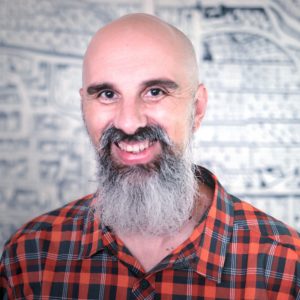
Claudio Ferlan (1972) è ricercatore presso l’Istituto Storico Italo-Germanico della Fondazione Bruno Kessler (Trento). Laureato in giurisprudenza e in storia del cristianesimo, dottore di ricerca in storia moderna. Studia principalmente la Compagnia di Gesù e la storia delle missioni, in Europa e nelle Americhe, tra XVI e XIX secolo. Si interessa della cultura alimentare e della sua rilevanza per le religioni cosiddette indigene e per quelle cristiane. Su questo tema ha scritto Venerdì pesce. Digiuno e cristianesimo (il Mulino 2021) e Sbornie sacre, sbornie profane. L’ubriachezza dal Vecchio al Nuovo Mondo (il Mulino 2018, traduzione tedesca 2021). Sempre per il Mulino ha pubblicato I gesuiti (2015, traduzione portoghese brasiliana 2018), una storia della Compagnia di Gesù da Ignazio a Bergoglio e Dentro e fuori le aule (2012). Ha scritto una biografia del missionario gesuita José de Acosta (2014), uscita con le edizioni del Sole 24 Ore.
Ha avuto modo di fare ricerca in varie istituzioni estere (Università di Klagenfurt e Graz, Istituto Max Planck per la storia del diritto di Francoforte, École des hautes études di Parigi, Università di Berkeley e Boston College); viaggiando ha imparato molto sulla fondamentale importanza della public history e della comunicazione della storia.
FB @claudioferlanstorico
Twitter @claudioferlan
Foto @Andrea Franceschini
Author's articles
-
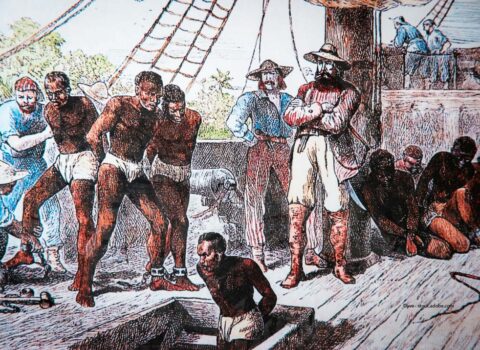 June 17, 2025Italy and Atlantic Slavery: A history erasedFederica Morelli previews the research directions of BlackItaly
June 17, 2025Italy and Atlantic Slavery: A history erasedFederica Morelli previews the research directions of BlackItaly -
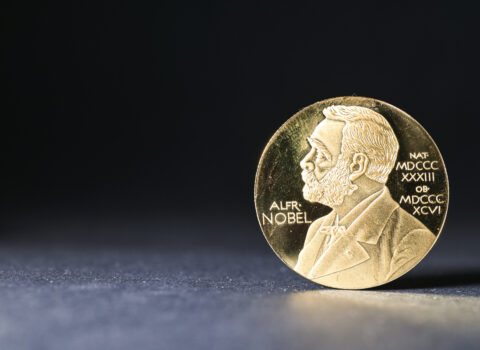 October 29, 2024The Nobel Prize in physics explained by our physicist Federica MantegazziniInterview by Claudio Ferlan, editor of FBK Magazine, on the occasion of the researcher's participation in the “Semplicemente Nobel” event.
October 29, 2024The Nobel Prize in physics explained by our physicist Federica MantegazziniInterview by Claudio Ferlan, editor of FBK Magazine, on the occasion of the researcher's participation in the “Semplicemente Nobel” event. -
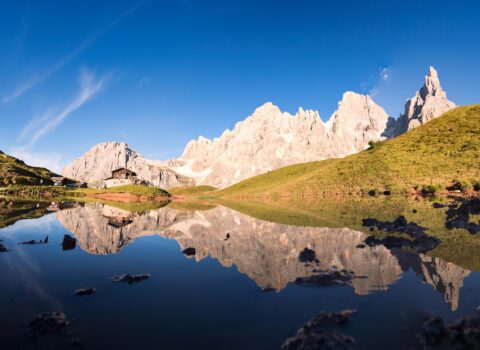 March 22, 2024Tourism, water and energy: three key elements for sustainabilityMarch 22 marks World Water Day, established by the United Nations in 1992. This year's theme is the link between water and climate change, an issue that deeply engages Fondazione Bruno Kessler's agenda. Let's see how.
March 22, 2024Tourism, water and energy: three key elements for sustainabilityMarch 22 marks World Water Day, established by the United Nations in 1992. This year's theme is the link between water and climate change, an issue that deeply engages Fondazione Bruno Kessler's agenda. Let's see how. -
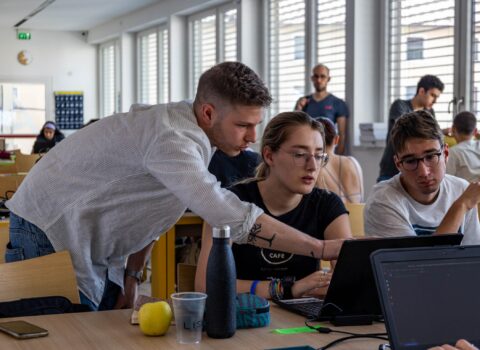 February 28, 2024Thinking curious. Communicating science to the scientists of tomorrowWhen organizing events directed at so-called popularization, those engaged in research as their profession often ask the question, "What do I have to do to engage young people?" The matter refers both to the unquestionable pleasure of having an audience to communicate to, sometimes to be retained, and to the belief that one has something to say, and consequently, that one deserves to be heard by those who will build the future. The idea of seeding is as appealing as it is fulfilling.
February 28, 2024Thinking curious. Communicating science to the scientists of tomorrowWhen organizing events directed at so-called popularization, those engaged in research as their profession often ask the question, "What do I have to do to engage young people?" The matter refers both to the unquestionable pleasure of having an audience to communicate to, sometimes to be retained, and to the belief that one has something to say, and consequently, that one deserves to be heard by those who will build the future. The idea of seeding is as appealing as it is fulfilling. -
 December 11, 2023Artificial journalism. Issues that are not that newThe great enemy of journalism is not Artificial Intelligence. There is worse, for example, the uncritical use of its know-how, falsehood and lack of accuracy.
December 11, 2023Artificial journalism. Issues that are not that newThe great enemy of journalism is not Artificial Intelligence. There is worse, for example, the uncritical use of its know-how, falsehood and lack of accuracy. -
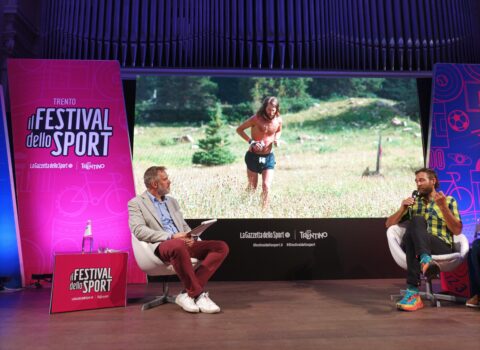 October 16, 2023Ultraman. An interview with Anton KrupickaThe Third episode of FBK Magazine's experience at the Trento Sports Festival. It is the turn of an interview with Anton Krupicka, a 40-year-old American ultrarunner, who told us about his relationship with curiosity, nature, and competition. All in all, he told us about the relentless quest that drives us to get to know ourselves more and more deeply.
October 16, 2023Ultraman. An interview with Anton KrupickaThe Third episode of FBK Magazine's experience at the Trento Sports Festival. It is the turn of an interview with Anton Krupicka, a 40-year-old American ultrarunner, who told us about his relationship with curiosity, nature, and competition. All in all, he told us about the relentless quest that drives us to get to know ourselves more and more deeply. -
 October 5, 2023Interdisciplinarity. One of FBK’s assetsA review of the latest articles in FBK Magazine prompts us to identify the virtuous blending of expertise as one of the most striking features of research. We look at collaboration as a key idea for progress not only in knowledge but also in everyday life.
October 5, 2023Interdisciplinarity. One of FBK’s assetsA review of the latest articles in FBK Magazine prompts us to identify the virtuous blending of expertise as one of the most striking features of research. We look at collaboration as a key idea for progress not only in knowledge but also in everyday life. -
 September 25, 2023The “treat” cultureIn this article that was published in the "Il T" newspaper on September 21, Claudio Ferlan analyzes the widespread and often unfounded fear of conspiracy, typical of a large part in the Italian sports press.
September 25, 2023The “treat” cultureIn this article that was published in the "Il T" newspaper on September 21, Claudio Ferlan analyzes the widespread and often unfounded fear of conspiracy, typical of a large part in the Italian sports press. -
 September 20, 2023Book of the month. A cycle of events to ponder over history through the written pageA series of events entitled "Book of the month", organized by the Italian-German Historical Institute in cooperation with the Foundation's Library, will be starting on Sept. 28, at Fondazione Bruno Kessler's location in via Santa Croce 77.
September 20, 2023Book of the month. A cycle of events to ponder over history through the written pageA series of events entitled "Book of the month", organized by the Italian-German Historical Institute in cooperation with the Foundation's Library, will be starting on Sept. 28, at Fondazione Bruno Kessler's location in via Santa Croce 77. -
 July 27, 2023Passion and research. FBK Magazine dedicates a space to talking about sports from different perspectivesExplore the marriage of sports, research and passion in FBK Magazine. Discover the relationship of those who work at Fondazione Bruno Kessler with sports, balancing ethics and work. Look into the importance of data in sports. Explore the unique relationship between sports and mountains in the run-up to the upcoming Winter Olympics. An open, engaging and growing worksite.
July 27, 2023Passion and research. FBK Magazine dedicates a space to talking about sports from different perspectivesExplore the marriage of sports, research and passion in FBK Magazine. Discover the relationship of those who work at Fondazione Bruno Kessler with sports, balancing ethics and work. Look into the importance of data in sports. Explore the unique relationship between sports and mountains in the run-up to the upcoming Winter Olympics. An open, engaging and growing worksite. -
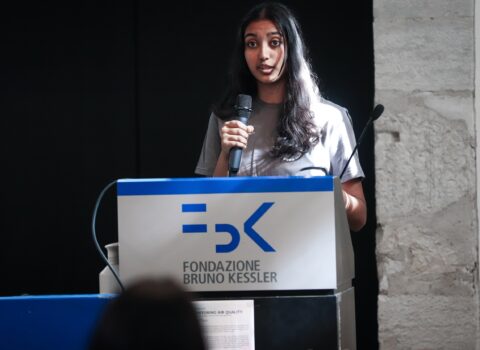 July 13, 2023WebValley and the Communication of ScienceJuly 7 marked the wrapping up of Webvalley, FBK's summer school dedicated this year to air quality analysis. Eighteen youths took part in it, and they had to focus also on telling the results of their work, which was accomplished with the help of exceptional mentors.
July 13, 2023WebValley and the Communication of ScienceJuly 7 marked the wrapping up of Webvalley, FBK's summer school dedicated this year to air quality analysis. Eighteen youths took part in it, and they had to focus also on telling the results of their work, which was accomplished with the help of exceptional mentors. -
 March 2, 2023Artificial intelligence and journalistic content. Predictions for a plausible futureIn my interest in journalism, there is a moment marked on the agenda, with highlighter. I refer to the annual appointment with the Niemand Foundation website, which at the end of the calendar year asks some of the "smartest people in journalism and media" for predictions for developments in journalism in the coming year.
March 2, 2023Artificial intelligence and journalistic content. Predictions for a plausible futureIn my interest in journalism, there is a moment marked on the agenda, with highlighter. I refer to the annual appointment with the Niemand Foundation website, which at the end of the calendar year asks some of the "smartest people in journalism and media" for predictions for developments in journalism in the coming year. -
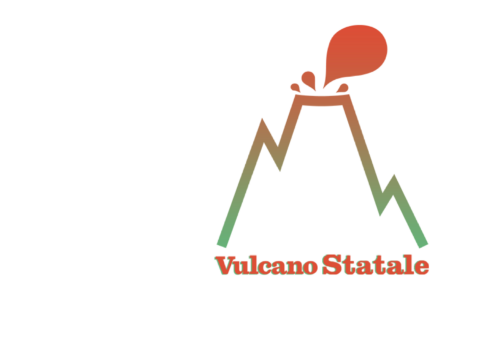 February 9, 2023Meeting the VolcanoThe Magazine is walking the path through new proposals, capable of pushing us outside the boundaries of Fondazione Bruno Kessler. We all know how fruitful external collaborations are, nurtured daily through comparisons, advice, division of work, and so on. But there can be more.
February 9, 2023Meeting the VolcanoThe Magazine is walking the path through new proposals, capable of pushing us outside the boundaries of Fondazione Bruno Kessler. We all know how fruitful external collaborations are, nurtured daily through comparisons, advice, division of work, and so on. But there can be more. -
 December 6, 2022Translating research. From complex to simple, from incomprehensible to clickable"Translation is not only about making research more understandable; it is also about presenting research in digestible, clickable formats that are likely to stand out"
December 6, 2022Translating research. From complex to simple, from incomprehensible to clickable"Translation is not only about making research more understandable; it is also about presenting research in digestible, clickable formats that are likely to stand out" -
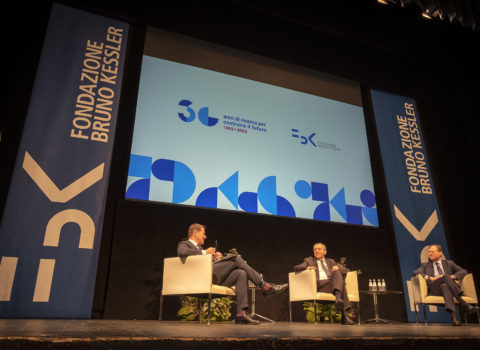 November 10, 2022Sixty years of Fondazione Bruno Kessler. The future asks us to allow for the communication of scienceWe, at Fondazione Bruno Kessler, celebrated our sixtieth birthday. Since it is an institution and not a person, it would not be an overstatement if we wrote "one thousand" instead of "one hundred of these days."
November 10, 2022Sixty years of Fondazione Bruno Kessler. The future asks us to allow for the communication of scienceWe, at Fondazione Bruno Kessler, celebrated our sixtieth birthday. Since it is an institution and not a person, it would not be an overstatement if we wrote "one thousand" instead of "one hundred of these days." -
 September 1, 2022Hoaxes in food and hoaxes in online searchesHow much can we trust reviews and comments found online? The risk of fake or artfully cooked news is always around the corner, we propose a parallel between catering and research to think about it.
September 1, 2022Hoaxes in food and hoaxes in online searchesHow much can we trust reviews and comments found online? The risk of fake or artfully cooked news is always around the corner, we propose a parallel between catering and research to think about it. -
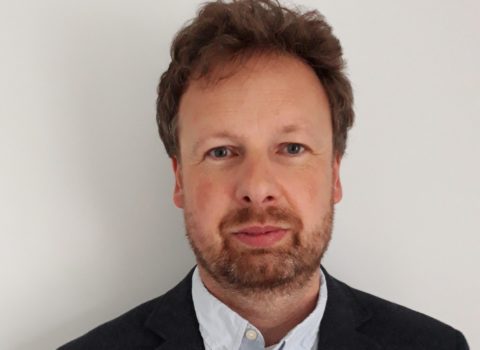 June 20, 2022Interview with Gert Aarts ECT* center director"All people forced to flee have the right to be protected and to rebuild their lives, without distinction". This is the motto of the World Refugee Day, which is celebrated on June 20. To commemorate this anniversary, we asked the Director of the European Center for Theoretical Studies in Nuclear Physics and Related Areas (ECT*), Gert Aarts, a few questions regarding the initiative aimed at Ukrainian researchers that will include three visiting scientists in the coming months within the Villa Tambosi Center. The Director explains how the initiative came about, how it has been received, and what the implications are for FBK and the scientific community.
June 20, 2022Interview with Gert Aarts ECT* center director"All people forced to flee have the right to be protected and to rebuild their lives, without distinction". This is the motto of the World Refugee Day, which is celebrated on June 20. To commemorate this anniversary, we asked the Director of the European Center for Theoretical Studies in Nuclear Physics and Related Areas (ECT*), Gert Aarts, a few questions regarding the initiative aimed at Ukrainian researchers that will include three visiting scientists in the coming months within the Villa Tambosi Center. The Director explains how the initiative came about, how it has been received, and what the implications are for FBK and the scientific community. -
 May 26, 2022The laboratoryConsiderations of a historian on the importance of team work and confronting during the writing of manuals.
May 26, 2022The laboratoryConsiderations of a historian on the importance of team work and confronting during the writing of manuals. -
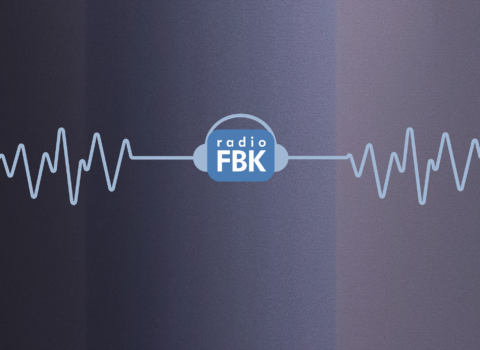 May 11, 2022No more news, let’s focus on informationHere come the Radio FBK podcasts: the Research you don't expect
May 11, 2022No more news, let’s focus on informationHere come the Radio FBK podcasts: the Research you don't expect -
 April 13, 2022Claudio Ferlan is the new editor in chief for Fondazione Bruno Kessler’s MagazineConsiderations on scientific communication and on the new look of the FBK Magazine
April 13, 2022Claudio Ferlan is the new editor in chief for Fondazione Bruno Kessler’s MagazineConsiderations on scientific communication and on the new look of the FBK Magazine -
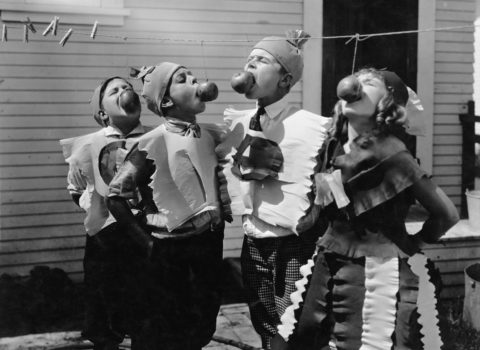 October 28, 2021Who invented Halloween?Before the Catholic feast of All Saints (November 1) there is that of Halloween (October 31), which is increasingly present in Italian families. But are they really two separate occasions? By carefully marching back through the centuries, we can find the arguments to build our answer to this question.
October 28, 2021Who invented Halloween?Before the Catholic feast of All Saints (November 1) there is that of Halloween (October 31), which is increasingly present in Italian families. But are they really two separate occasions? By carefully marching back through the centuries, we can find the arguments to build our answer to this question. -
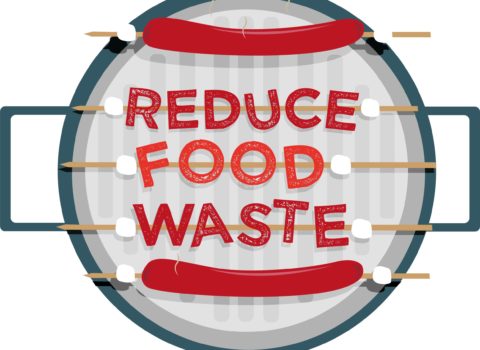 October 19, 2021cheSpreco! Togliamo il cibo dalla spazzaturaFinalmente dal vivo, ospiti del Centro di Formazione Professionale Enaip Alberghiero e Ristorazione di Ossana, abbiamo figuratamente tagliato il nastro di inaugurazione del progetto “cheSpreco! Togliamo il cibo dalla spazzatura”, finanziato dalla Fondazione Caritro.
October 19, 2021cheSpreco! Togliamo il cibo dalla spazzaturaFinalmente dal vivo, ospiti del Centro di Formazione Professionale Enaip Alberghiero e Ristorazione di Ossana, abbiamo figuratamente tagliato il nastro di inaugurazione del progetto “cheSpreco! Togliamo il cibo dalla spazzatura”, finanziato dalla Fondazione Caritro. -
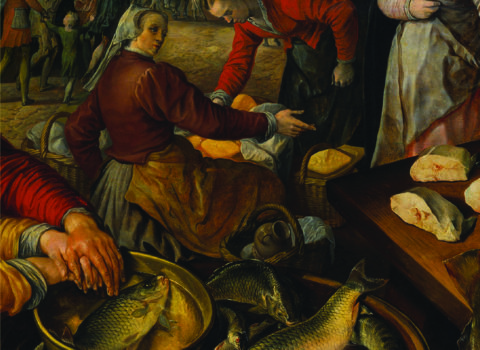 March 25, 2021Fasting is not anymore what it used to beWe are in Lent, the forty-day period preceding Easter which according to Catholic norms should be characterized by fasting and abstinence. Often the two terms are used interchangeably, but it is wrong to do so.
March 25, 2021Fasting is not anymore what it used to beWe are in Lent, the forty-day period preceding Easter which according to Catholic norms should be characterized by fasting and abstinence. Often the two terms are used interchangeably, but it is wrong to do so.
Related tags
- Loading tags...
- #extreme sports
- #podcast
- #societàdigitale
- #welcome
- #historiography
- #pollution
- #water
- #anniversary
- #sport
- #intelligenzaartificiale
- #festival dello sport
- #fasting
- #research
- #society
- #history
- #radiofbk
- #tourism
- #spreco alimentare
- #60 anniversary
- #digitalsociety
- #sensordevices
- #energy
- #cultura
- #easter
- #artificialintelligence
- #journalism
- #vulcano
- #library fbk
- #sustainability
- #giornalismo
- #blackItaly
- #ECT
- #books
- #terra
- #halloween
- #futuro
- #librodelmese
- #traduzione
- #webvalley
- #nextgeneration
- #libri
- #ukraine
- #studistorici
- #editoriale
- #ectstar
- #quantum
- #communication
- #bufale
- #lent
- #sustainableenergy
- #physics
- #FBK
- #abstinence
- #Intelligenza artificiale
- #laboratory
- #historicalstudies
- #editorial
- #ricerca
- #fbkjunior
- #saints
- #deepfake
- #deep fake
- #infodemic
- #news
- #ai4education
- #fake news
- #air
- #science